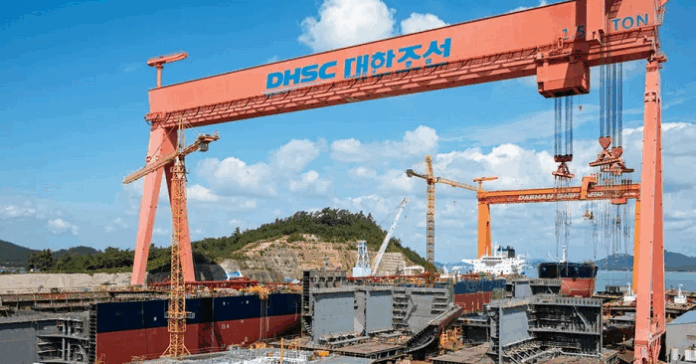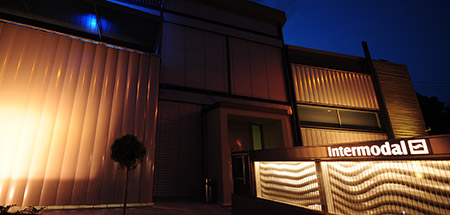

The government will provide financial support for projects aimed at building icebreakers that will run through Arctic shipping routes, the oceans minister said Thursday, as Korea plans to begin pilot operations on the envisioned Northern shipping corridors next year.
“We will invest 11 billion won ($8 million) per vessel built with icebreaking capabilities for operation on the Arctic shipping routes,” Minister Chun Jae-soo said in a press conference, noting the Ministry of Oceans and Fisheries has allocated funds for the project in next year’s ministry budget.
Chun projected that icebreakers will be able to operate in the Arctic corridors in earnest from 2030, citing a study conducted by Pohang University of Science and Technology (POSTECH), one of Korea’s top tech universities.
The ministry has earmarked a budget of 7.3 trillion won, including 1.66 trillion won for expanding and enhancing port infrastructure in the southeastern region in anticipation of the expansion of the Northern shipping routes, for its 2026 operations.
The Lee Jae Myung administration has pledged to make the southeastern port city of Busan and the surrounding region in the south into a global maritime hub.
To this end, the government plans to relocate the headquarters of the oceans ministry to Busan by the end of this year. The ministry currently sits in the central administrative city of Sejong, along with most other central government ministries.
Chun said the ministry will begin renovating the building in Busan to be used as its new headquarters next month, calling the relocation the “first step” in transforming the southern region into a global maritime hub.
The ministry will also encourage local shipping companies to relocate to Busan, as well, partly by offering various incentives, while working to establish a new maritime court and an investment corporation for the southeastern region in the city, according to Chun.
Additionally, Chun plans to head a government task force that will prepare the country for the envisioned era of Arctic shipping routes, while pushing for the creation of a public-private committee and a support organization for related projects, he added.
Further, the ministry will push to exempt preliminary feasibility studies for the development of core technologies in autonomous ships powered by artificial intelligence (AI).
The ministry also plans to begin constructing a test bed for smart port technologies in the southwestern port city of Gwangyang, South Jeolla Province, in November and push for memorandums of understanding with Denmark and Singapore for cooperation in creating net zero emissions shipping corridors.
Regarding media reports that steel giant POSCO Group is considering acquiring HMM, the country’s leading container shipper, Chun said the issue should be viewed through the perspective of national interest, as opposed to that of a single company.
“There may be criticism that discussions on HMM’s governance is being delayed, but I will address both the possible relocation of HMM’s headquarters to Busan and its governance issue at an appropriate time,” Chun added.
Earlier in the day, the Korea Shipowners’ Association issued a statement opposing POSCO’s purported bid to acquire HMM, claiming the move could “destroy the shipping ecosystem” of Korea.
On the ongoing water release from the Fukushima nuclear power plant in Japan, Chun said no signs of safety breaches have been reported, but the government plans to continue monitoring the level of radioactive material in waters around the Korean Peninsula as a precaution.
Source: TheKoreaTimes



